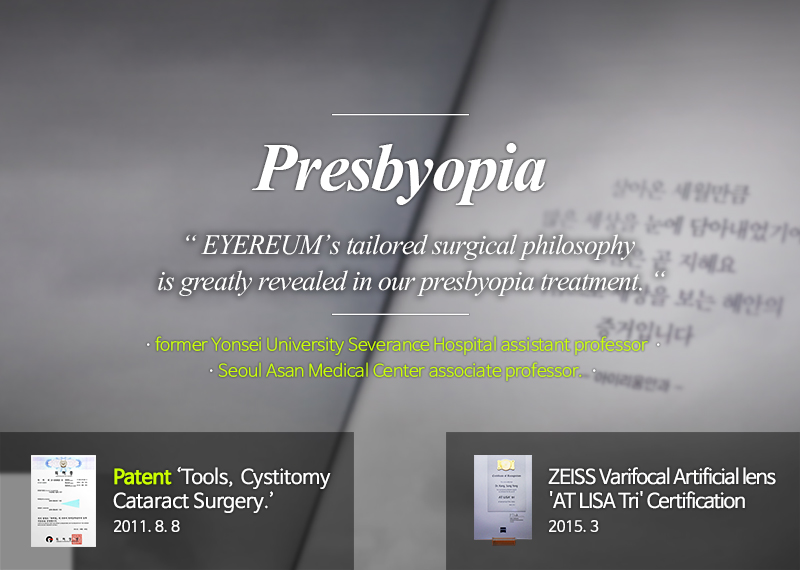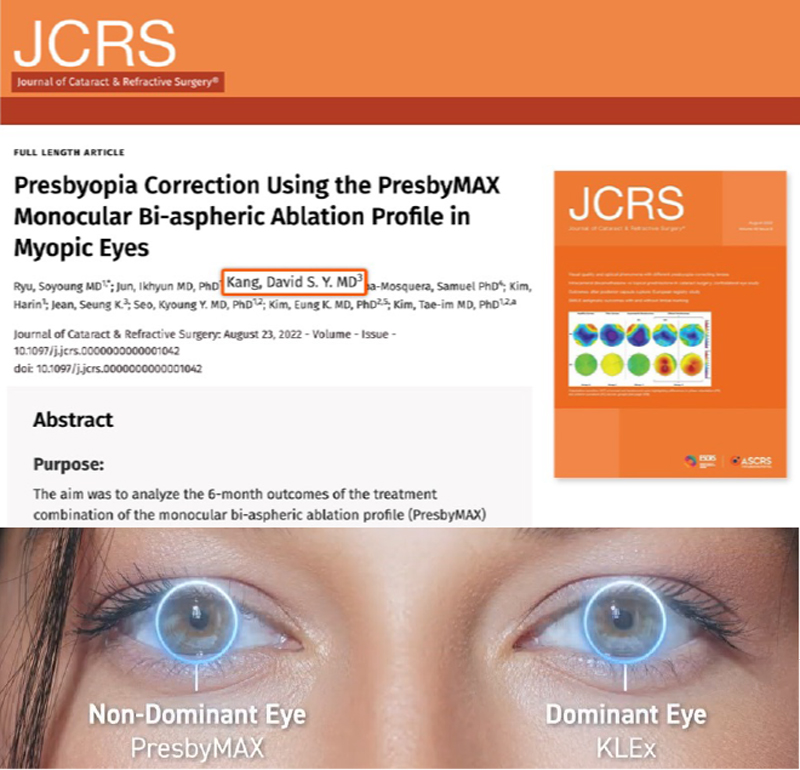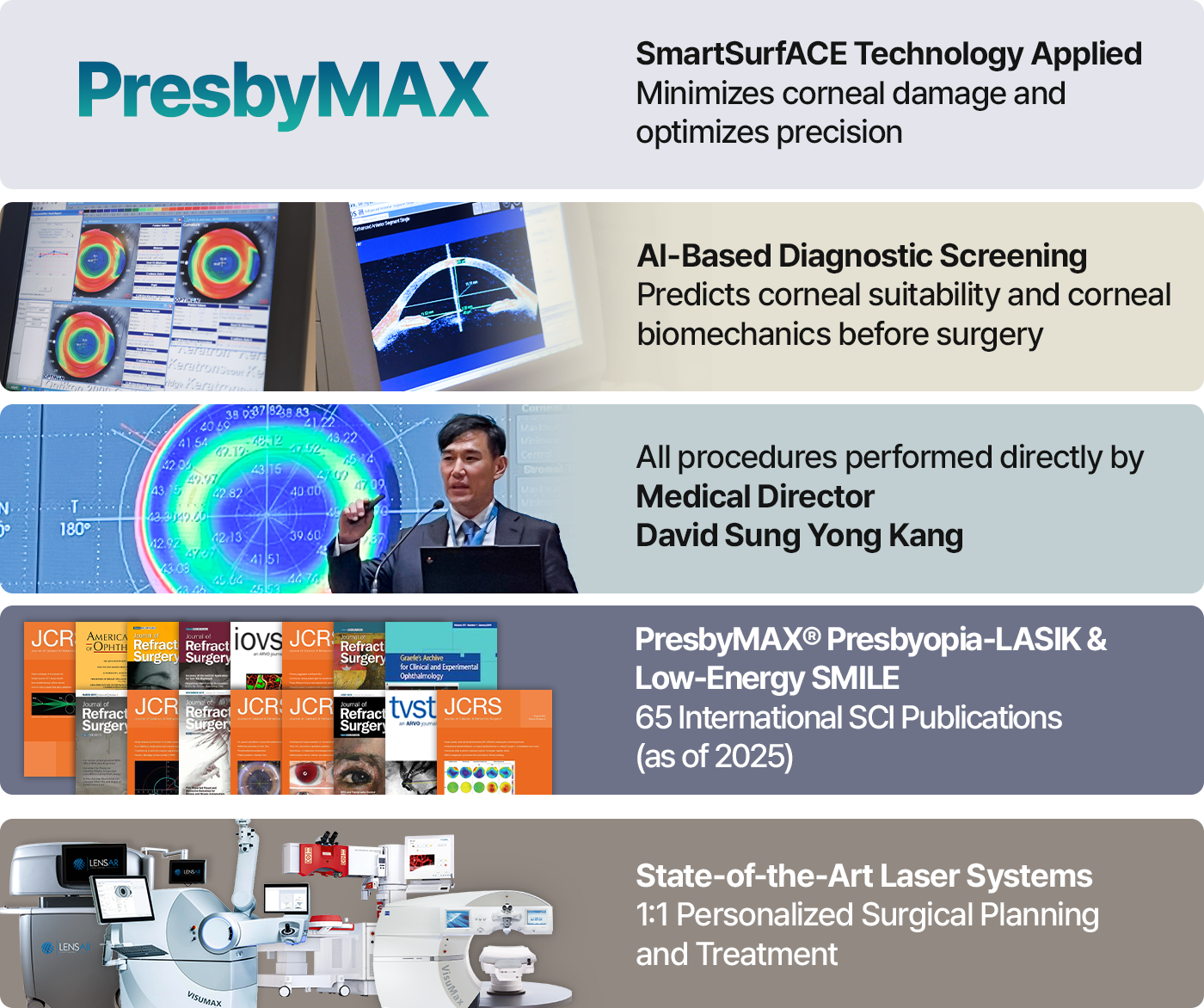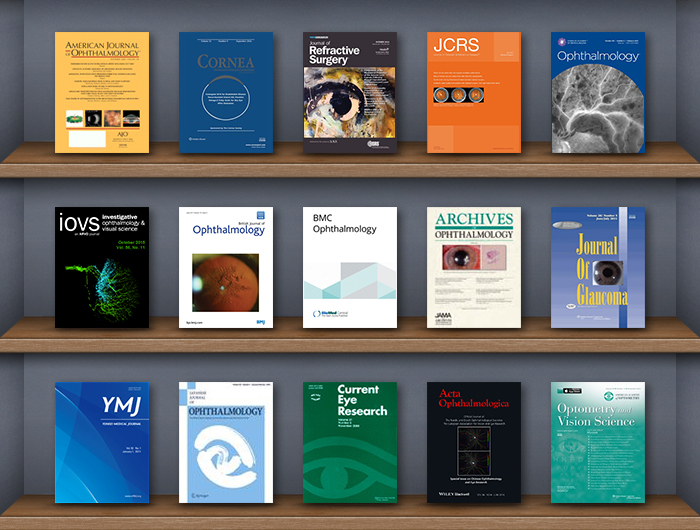
PresbyMAX is a new blended-vision approach that improves both near and distance vision for patients in their 40s–50s. The dominant eye is corrected for distance using SMILE or LASIK, while the non-dominant eye undergoes PresbyMAX to create a multifocal corneal profile—enhancing near vision in the central cornea and supporting distance vision in the peripheral cornea.

Non-dominant eye: PresbyMAX
Bi-aspheric corneal ablation profile
PresbyMAX® presbyopia correction is performed through a personalized 1:1 surgical design that considers the patient’s occupation and lifestyle, creating comfortable binocular vision at the distances they use most frequently.

For patients in their 40s–50s planning vision correction after the onset of presbyopia, we determine the most suitable surgical method based on more than 70 pre-operative examination results. This personalized approach allows us to correct both presbyopia and existing refractive errors such as myopia, hyperopia, and astigmatism.

personalized Vision Correction for People in Their 40s–50s.
Comprehensive Solutions for Presbyopia, Near and Distance Vision.









